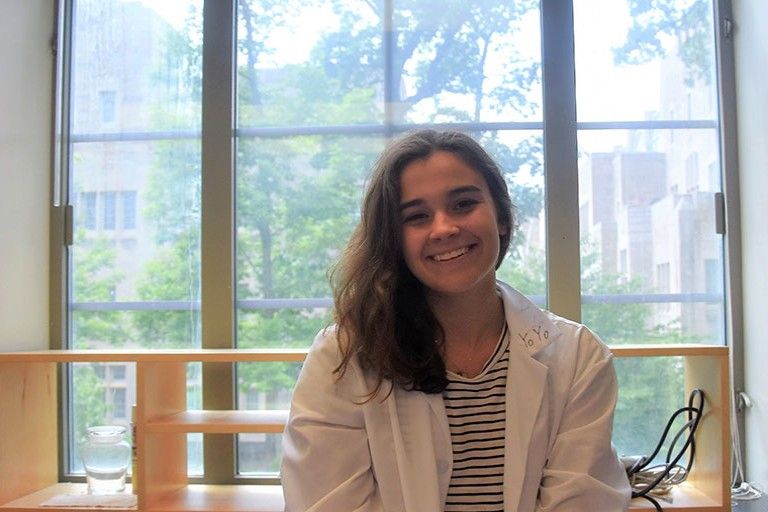For sophomore and biology major Frannie Kincaid, research came to her by surprise. An aspiring medical professional, Kincaid always assumed she would be working with patients alone and that medicinal research was outside of the scope of her career. That was until her senior year of high school when she began work in Dr. Nephew’s lab in the medical sciences department. Kincaid now works in that same lab researching ovarian cancer and the behavior of chemo-resistant cells.
Kincaid says that she believes the research she is doing now will allow her to be a better doctor in the long run. “If you look at a patient, if you’re treating a patient with a drug, I’ll get to learn what the science behind that drug is,” Kincaid said. “I can see how it came to be or how these advances in medicine came to be and I think that’s a really good point of view that a lot of medical professionals don’t have.”
Her enthusiasm wasn’t always untested, however. When Kincaid first began work in the research lab, there were doubts as to how helpful she could be. But, Kincaid said, those doubts can be put to rest by simply asking questions and learning more about what you are working on.
“When I first came here, I literally had never stepped foot in a lab. I was terrified,” Kincaid said. “I thought I was going to ask stupid questions, and people are going to say, ‘What is wrong with you?’ but when I got here, the Ph.D. student that I worked under said ‘No question is a dumb question’ and every person starts out where you are.’”
Kincaid says that through asking questions she’s learned a lot and become more comfortable in a lab, a skill that will stay with her and benefit her throughout her career. The newfound passion she has found for research and the intricacies of medicine can be credited to her work in the lab, she said, and she encourages others to take the risk and do that same.


